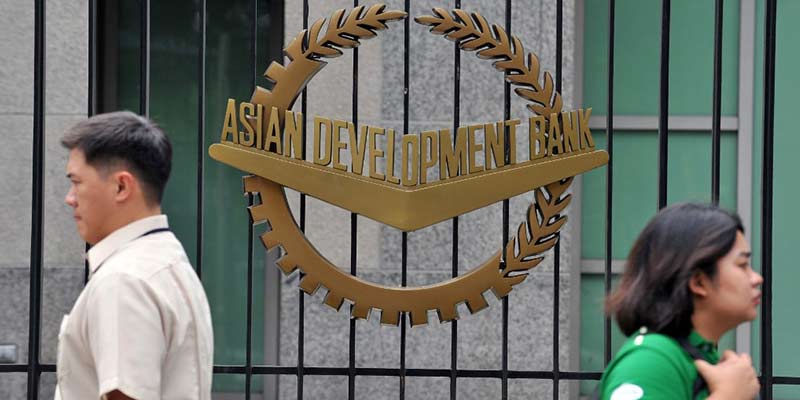- India
- Apr 29
ADB approves $1.5 billion loan to India
The Asian Development Bank (ADB) said that it has approved a $1.5 billion (about Rs 11,400 crore) loan to India to help fund its fight against the coronavirus pandemic.
The loan has been sanctioned with a view to support immediate priorities such as disease containment and prevention, as well as social protection for the poor and economically vulnerable sections.
It is fully committed to supporting the Indian government in its response to this unprecedented challenge, said ADB president Masatsugu Asakawa.
“The quick-disbursing fund is part of a larger package of support that ADB will provide in close coordination with the government and other development partners. We are determined to support India’s COVID-19 response programmes and ensure that they provide effective support to the people of India, especially the poor and vulnerable,” Asakawa said in a statement.
Asian Development Bank
The Asian Development Bank (ADB) envisions a prosperous, inclusive, resilient, and sustainable Asia and the Pacific, while sustaining its efforts to eradicate extreme poverty in the region.
From 31 members at its establishment in 1966, ADB has grown to encompass 68 members — of which 49 are from within Asia and the Pacific and 19 outside.
ADB assists its members, and partners, by providing loans, technical assistance, grants, and equity investments to promote social and economic development.
ADB maximises the development impact of its assistance by facilitating policy dialogues, providing advisory services, and mobilising financial resources through cofinancing operations that tap official, commercial, and export credit sources.
History of ADB
ADB was conceived in the early 1960s as a financial institution that would be Asian in character and foster economic growth and cooperation in one of the poorest regions in the world.
A resolution passed at the first Ministerial Conference on Asian Economic Cooperation held by the United Nations Economic Commission for Asia and the Far East in 1963 set that vision on the way to becoming reality.
The Philippines capital of Manila was chosen to host the new institution, which opened on 19 December 1966, with 31 members that came together to serve a predominantly agricultural region. Takeshi Watanabe from Japan was ADB’s first president.
India and ADB
India was a founding member of ADB in 1966 and is now the bank’s fourth-largest shareholder and top borrower.
ADB commenced operations in India in 1986 and has since committed 229 sovereign loans totaling $38.9 billion. The current portfolio includes 79 sovereign loans amounting to $13.5 billion, of which $9.9 billion has been awarded and $6.1 billion disbursed.
In 2018, ADB committed a record $3.03 billion for 19 sovereign projects to help India develop infrastructure and services in transport, energy, urban development, agriculture and natural resources, finance, and education and training.
ADB’s support to India is guided by the country partnership strategy, 2018–2022. Aimed at accelerating economic transformation by building industrial competitiveness, creating jobs, accelerating growth of low-income states, and addressing environmental and climate change challenges, the strategy focuses on six sectors (transport, energy, urban, public sector management, agriculture & natural resources, and human development).
Annual lending to India is envisaged to increase to $4 billion, including private sector operations, compared with an average of about $3 billion per year during 2014–2018.
To enhance country operations with more transformative programs, ADB is extending support to strategic analytical work in critical development initiatives for India. The bank’s flagship East Coast Economic Corridor, which extends from Kolkata to Kanyakumari, aims to foster competitive manufacturing and facilitate integration into regional and global value chains. ADB is also helping prepare a development strategy for Assam (Expressway to ASEAN) and an infrastructure framework plan for Uttar Pradesh.
How will ADB support govt to combat pandemic?
The CARES Programme is provided as the first support to meet the immediate requirements of the government.
The Manila-headquartered multilateral agency said its COVID-19 Active Response and Expenditure Support (CARES) Programme will contribute directly to the improvement of access to health facilities and care, as well as social protection for more than 800 million people, including families below the poverty line, farmers, health care workers, women, senior citizens, people with disabilities, low wage earners, and construction workers.
The CARES Programme is funded through the COVID-19 pandemic response option (CPRO) under ADB’s Countercyclical Support Facility. CPRO was established as part of ADB’s $20 billion expanded assistance for developing member countries’ COVID-19 response, which was announced on April 13.
As per the ADB, the CARES Programme will be provided with a $2 million technical assistance grant to support the government to strengthen its operational framework and efficient targeting, delivery, and monitoring and evaluation of its pro-poor economic package, as well as its health sector and social protection interventions.
In the medium term, ADB said it will support government efforts and coordinate with other development partners to stimulate the economy, build capacity for monitoring and evaluation of government programs, and improve economic resilience against future shocks.
This will include the economic recovery of affected industries and entrepreneurs through better access to finance for MSMEs, a credit enhancement facility for infrastructure projects and the strengthening of public service delivery at national and state levels.
Manorama Yearbook app is now available on Google Play Store and iOS App Store

